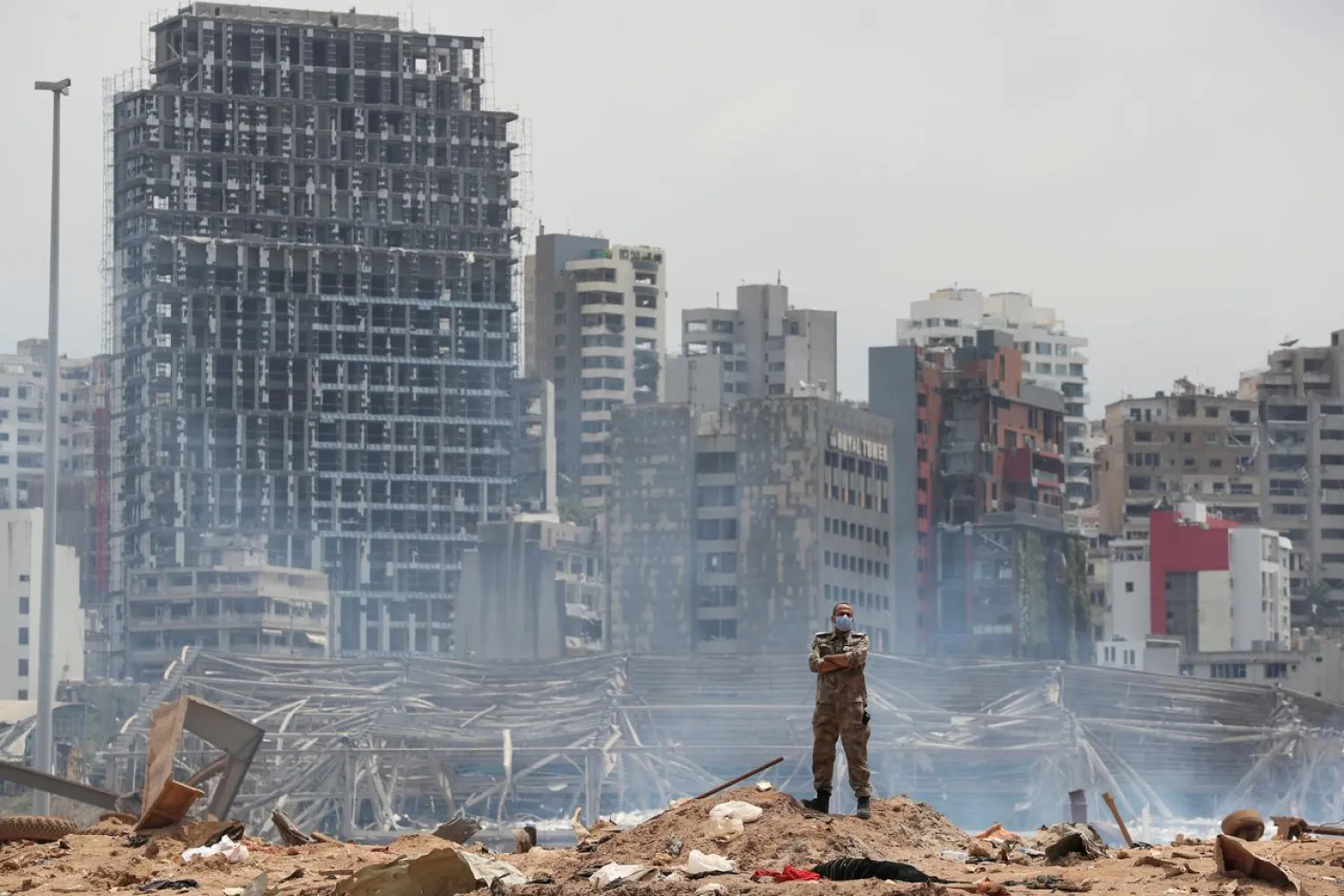A Lebanese lawyer filed a legal complaint on Wednesday against President Michel Aoun and outgoing Prime Minister Hassan Diab for not taking action to remove dangerous material that had been stored at the port of Beirut.
The material — 2,750 of ammonium nitrate —ignited on August 4, killing scores and wounding thousands of people.
The move by lawyer Majd Harb is largely symbolic, based on the fact that Aoun and Diab received a security report two weeks before the explosion, warning about the dangers of storing the chemical.
Following the blast, Aoun said that once he received the report, he asked his military adviser to immediately act on it and do what was necessary. However, it was not clear why the material was not removed. There has been no comment from Diab, who resigned under pressure few days after the blast.
“They did not take any measures to prevent the explosion,” Harb’s complaint said.
Documents that surfaced after the blast, showed that many customs, port, intelligence, military and judicial officials, as well as political leaders, knew about the stockpile of ammonium nitrate at Warehouse 12 at Beirut’s port and nothing was done.
The explosion, which killed 180 people, injured about 6,000 and left nearly 300,000 people homeless was the most destructive single incident in Lebanon’s history, leaving losses worth between $10 and $15 billion.
There are 30 still missing after the explosion.
So far authorities have detained 19 persons, many of them customs and port officials, for questioning. The head of the port and the country’s customs chief were both formally detained earlier this week.









